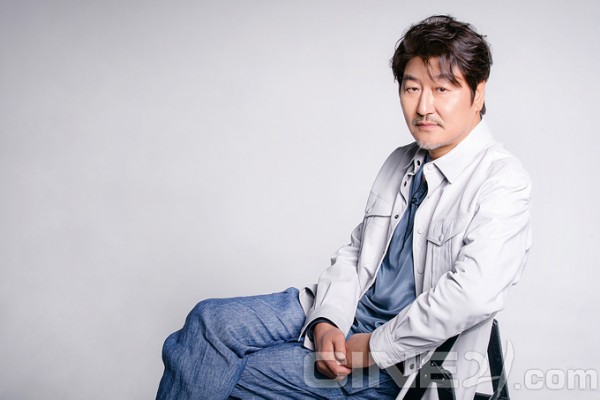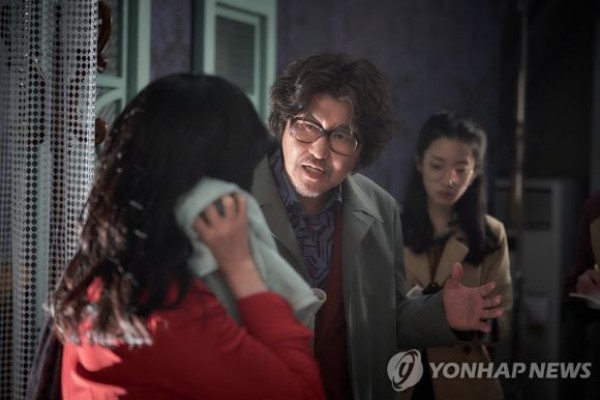130, Suyeonggangbyeon-daero,
Haeundae-gu, Busan, Republic of Korea,
48058
NEWS & REPORTS
From Joseon Dynasty Monarch to Cab Driver in the 1980s Korea
Apr 03, 2017
- Writerby CHO Meanjune
- View3129
Observing the Shadows Drawn over Korean History through Actor SONG Kang-ho’s Filmography

The year 2013 marks a turning point for actor SONG Kang-ho. At the time, he was already a veteran with a 20-year career behind him, yet this was a year when every character he played had the reputation of being the ‘first’ for what it was recognized for. In Snowpiercer, he was a member of the first multi-national cast in a Korean film, while The Face Reader was his first costume drama. But his most noted role was the one based on a real character in the biopic The Attorney. Whether it was by chance or by choice, the next four films SONG Kang-ho starred in were based on true events.
SONG Kang-ho’s latest four films shed light on turbulent periods in Korean history from the Joseon Dynasty to the Japanese colonial and military dictatorship periods. Likewise, the characters he played in these four films serve as a significant key to understanding the dark side of the times Korean society has gone through.
1981, An Awakening for Korea’s Future President
The Attorney

The character SONG Kang-ho plays in The Attorney is the dramatized persona of Korea’s 16th president, the late ROH Moo-hyun. However the director YANG Woo-suk, instead of portraying ROH’s political career, focuses on a younger ROH when he opens his eyes to justice.
1978, ROH in his 30s quits his job as a judge to open an attorney’s office and becomes quite successful as a real estate registration and tax attorney, a field rarely handled by his competitors. He was indifferent to politics. It is said ROH Moo-hyun spent most of his time drinking when Korea was at unrest due to the coup caused by CHUN Doo-hwan’s new military. It was not until 1981 when he visited the victims of the ‘Boorim Case’ that his views of reality totally changed.
The Boorim Case dealing with the public authorities arresting 22 members of a social science book club consisting of university students, teachers and company employees and torturing them to frame them as communists was what triggered the materialistic ROH into shifting gears as a civil-rights attorney. In spite of his efforts, 6 of the Boorim Case defendants received sentences. It wasn’t until the death of their attorney and the president of Korea, ROH Moo-hyun in 2014, that they were granted a retrial and finally cleared their names after being acquitted.
The Greatest King and the Worst Father of the Joseon Dynasty
The Throne

King Yeongjo played by SONG Kang-ho in The Throne (2015) was a king with a mixed reputation. He is claimed the greatest king of the mid to late Joseon era for his accomplishments in rebuilding the country devastated by continuous Japanese and Chinese invasions, while appointing talented subjects to important political positions regardless of faction. Yet on the other hand, he is also considered the cruelest monarch and father for killing his son, ‘Prince Sado’ with his own hands.
The actual events in 1762 the film is based on, are claimed as one of the most noted mysteries in Korean political history. From his accession to the throne, Yeongjo’s legitimacy was questioned. His biological mother was not the queen nor royal concubine, but a slave who was at the lowest end of the social class structure. To make matters worse, there were rumors that he poisoned his half brother and predecessor, King Gyeongjong in order to take the throne.
Among the most popular conspiracy theories is the claim that Yeongjo was in conflict with his son, Prince Sado and the political power which had something on him. And the king’s judgment dampened by his subjects who constantly came between him and his son eventually drove him to murder Prince Sado.
The widely-accepted opinion blames King Yeongjo’s abnormal obsession toward his son as the reason for this tragedy. Such issue of legitimacy took its toll as Yeongjo was plagued by an inhibition to show any weaknesses to his subjects, resulting in a perfectionist inclination during his entire reign. This continued onto his son, Sado. Yeongjo’s strict disciplinary training brought mental illness upon the prince, and the father and son’s constant emotional clash eventually headed for a bridge of no return.
Japanese Occupation Era, Only Those Who Stand in the Grey Area Survive
The Age of Shadows

The next real character with a conflicting reputation played by SONG Kang-ho was in The Age of Shadows (2016). Set in the Joseon during the Japanese colonial occupation, this spy film dramatizes the 1923 event whereby the Korean working as a Japanese police officer, HWANG Ok helps the secret freedom fighter organization, ‘Korean Heroic Corps’ to load explosive onto a train back to Korea.
LEE Jung-chool (played by SONG Kang-ho) inspired by this actual historical figure becomes inadvertently involved with the freedom fighters, but eventually becomes one of them in the film. Nevertheless, it is hard to tell what HWANG Ok’s intentions really were. His superior, the Japanese police officer SHIROKAMI Yukichi testified that HWANG infiltrated the Korean Heroic Corps under his orders to arrest the freedom fighters, while the head of the Korean Heroic Corps, KIM Won-bong claimed that HWANG was an official member.
He was kidnapped to North Korea during the Korean War and to this day his whereabouts are unknown. This means the truth to his real identity will forever remain a mystery.
Back to the 1980s, From a Foreigner’s Point-of-View
Taxi Driver

SONG Kang-ho’s filmography based on true characters starting from the 1980s finally returns to this period. The historical background to his latest work, Taxi Driver is the May 18th Gwangju Democratization Movement in 1980 whereby the CHUN Doo-hwan military government massacred the Gwangju people protesting the martial law order.
This tragedy covered up as a riot with North Korean ties due to the government’s control of the press was disclosed to the world by German TV journalist Jurgen Hinzpeter. A press correspondent based in Tokyo at the time, he flew to Seoul the following day of the news and sneaked into Gwangju on May 20th, fooling the military government into believing he was going down to Gwangju in search of his colleagues and succeeding to capture the images of the massacre.
Behind his successful journey from Seoul to Gwangju was the help of cab driver, KIM Sa-bok. SONG plays the dramatized role of KIM Sa-bok through his character, Man-sup. It looks like SONG Kang-ho who has continued to play actual characters at the center of historical events is now stepping back as the observer.
















